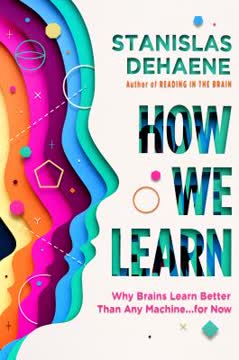つの重要なポイント
1. 楽観バイアス:脳に備わったバラ色の眼鏡
「楽観バイアスは他の多くの錯覚と同様に、完全に意識的な熟考にアクセスできないため、非常に強力です。」
広範な楽観主義。 人間は常にポジティブな出来事の発生確率を過大評価し、ネガティブな出来事の発生確率を過小評価します。このバイアスは年齢、人種、社会経済的地位を問わず影響を及ぼします。約80%の人々が楽観的な傾向を示し、離婚、病気、失業などの経験が他人よりも少ないと信じています。
適応機能。 楽観バイアスは重要な進化的目的を果たします。将来の痛みや困難を正確に認識することから私たちを守り、ストレスや不安を軽減します。この錯覚は精神的および身体的健康を向上させ、モチベーションを高め、より良い選択肢を想像し追求することを可能にします。
神経基盤。 このバイアスは特定の脳構造とプロセスに根ざしています。扁桃体と前帯状皮質(rACC)は楽観主義を媒介する重要な役割を果たします。これらの領域は人々がポジティブな未来の出来事を想像する際に活性化し、接続性が高まることが示されており、私たちのバラ色の見通しに生物学的基盤があることを示唆しています。
2. 未来思考の進化:鳥から人間へ
「楽観主義は、未来を考える少なくとも基本的な能力がなければ存在しません。楽観主義は定義上、まだ来ていないことについてのポジティブな信念だからです。楽観主義がなければ、予測は壊滅的なものとなるでしょう。」
鳥から人間へ。 未来を考え計画する能力は人間に特有のものではありません。スクラブジェイに関する研究は、彼らが未来のニーズを計画し、戦略的に食べ物を隠し、楽観的な傾向さえ示すことを示しています。これは、未来思考と楽観主義の根が進化の歴史の中で非常に古いことを示唆しています。
前頭葉の発達。 人間を際立たせるのは高度に発達した前頭葉です。この脳領域は、以下のようなより洗練された未来思考を可能にします:
- 長期計画
- 抽象的な推論
- 複数の可能な結果の考慮
- 自己認識
楽観主義と予測の結びつき。 人間が未来を鮮明に想像する能力は、楽観主義を維持するメカニズムと共に進化しました。この結びつきは、私たちの種の生存と成果にとって重要であり、不確実性に伴う不安を管理しながら、より良い結果を想像し追求することを可能にしました。
3. 自己成就予言:楽観主義が現実を形作る方法
「目標が達成可能であるだけでなく非常に可能性が高いと信じることは、人々が望ましい結果を達成するために精力的に行動することにつながります。」
期待が行動を駆動する。 楽観的な期待は、ポジティブな結果をより可能にする行動につながることがよくあります。この自己成就的な楽観主義の性質は、さまざまな文脈で実証されています:
- スポーツ:勝つことを期待するアスリートはより一生懸命にトレーニングする
- 健康:楽観的な患者はしばしば回復が早く、治療計画に従う
- 教育:成功できると信じる学生はより多くの努力を払い、より良い結果を達成する
神経化学的基盤。 楽観的な期待は、ドーパミンなどの神経伝達物質の放出を引き起こし、私たちを気分良くさせるだけでなく、モチベーションと学習を向上させます。この神経化学的なブーストは、パフォーマンスを向上させ、成功の可能性を高めます。
バランスの取り方。 楽観主義は自己成就的である一方で、バランスを取ることが重要です。極端な楽観主義は、計画の不十分やリスクの高い行動につながる可能性があります。現実的な評価と準備を伴う適度な楽観主義が最良の結果をもたらす傾向があります。
4. 個人的な楽観主義と公共の絶望:逆説的な視点
「多くの場合、人々は近い将来に個人的にうまくいくと期待しながら、国全体が悪化するだろうと予想します。」
個人対集団の見通し。 人々は自分の個人的な未来については楽観的である一方で、社会全体については悲観的な見方を持つ傾向があります。この逆説はさまざまな文化や時代にわたって一貫して観察されています。
心理的メカニズム:
- コントロール感:人々は自分が直接影響を与えられると信じることについてより楽観的になる
- 相対性:自分の個人的な状況が平均よりも良いと信じることで優位性を感じる
- メディアの影響:ネガティブなニュース報道が社会的傾向の認識を歪める
適応機能。 個人的な楽観主義と公共の悲観主義の間のこの不一致は、適応的な目的を果たすかもしれません。個人の改善を目指す動機を与えながら、広範な社会的課題に対して現実的(または慎重な)見方を維持することができます。
5. 幸福の意外なレシピ:それはあなたが思うものではない
「より良い未来を想像すること—それは特定のルールに従えば達成可能だと私たちは思う—が私たちの幸福を維持します。」
幸福に関する誤解。 多くの人々は、富、結婚、子供を持つことなどの外的要因が幸福の鍵であると信じています。しかし、研究はこれらの要因が長期的な幸福に与える影響が予想よりも少ないことを示しています。
期待の力。 驚くべきことに、ポジティブな出来事の期待はしばしばその出来事自体よりも多くの喜びをもたらします。これが説明するのは:
- 人々がしばしば満足を遅らせることを好む理由
- 休暇の計画が実際の旅行よりも楽しいことがある理由
- 未来の幸福の期待が現在の幸福の重要な源である理由
楽観主義を幸福戦略として。 現在の状況に関係なく、未来について楽観的な見方を維持することは、生活満足度と強く関連しています。これは、特定の人生目標や取得物を追求するよりも、楽観主義を育むことがより効果的な幸福戦略であるかもしれないことを示唆しています。
6. 逆境に対するレジリエンス:脳の錬金術
「私たちの心は逆境を機会に変える『賢者の石』を持っているようです。」
迅速な適応。 人間の脳はネガティブな状況に驚くべき速さで適応する能力を持っています。研究は、離婚、失業、さらには重傷などの大きな挫折の後でも、人々が比較的早く幸福の基準レベルに戻ることを示しています。
認知的再構成。 このレジリエンスは、ネガティブな出来事をポジティブな光で再構成する能力に大きく依存しています。脳は積極的に銀の裏地を探し、次のことを可能にします:
- 苦しみに意味を見出す
- 挑戦の中で成長の機会を見つける
- 厳しい状況でも希望と楽観主義を維持する
神経メカニズム。 この再構成プロセスは、前頭皮質と皮質下領域、特に前帯状皮質(rACC)との複雑な相互作用を伴います。これらの脳領域は、感情的な反応を調整し、状況のポジティブな側面に注意を向けるために協力します。
7. 記憶のトリック:感情が過去を再形成する方法
「私たちは中心的な感情的な詳細とその時の感情を覚えていますが、周囲の正確な詳細を提供することはできません。」
フラッシュバルブ記憶。 9/11のような非常に感情的な出来事は、鮮明で写真のような記憶を作り出すことがよくあります。しかし、研究はこれらの記憶が私たちが信じるほど正確ではないことを示しています。
感情が記憶に与える影響:
- 中心的な感情的な詳細の記憶を強化する
- 周辺的な非感情的な詳細の記憶を減少させる
- 鮮明さと正確さの主観的な感覚を増加させる
適応機能。 この記憶バイアスは重要な目的を果たします。感情的で個人的に関連する情報を優先することで、私たちの記憶システムは重要な経験から学び、将来の行動を導くのに役立ちます。
8. 選択による好みの変化:なぜ私たちは選んだものを愛するのか
「各女性はその後、自分が選んだ家電製品が最初に思っていたよりも良いものであり、拒否した選択肢はそれほど良くないと確認しました。」
選択後の合理化。 選択肢の中から選んだ後、人々は選んだ選択肢をより好意的に見、拒否した選択肢をあまり好意的に見なくなる傾向があります。この現象は、選択による好みの変化として知られ、初期の選択肢が同等に評価されていた場合でも発生します。
神経基盤。 脳画像研究は、この好みの変化が尾状核の活動変化と関連していることを明らかにしています。尾状核は報酬と期待の処理に関与しており、選択の行為が実際に価値の神経表現を変えることを示唆しています。
進化的利点。 この選択に対する好みの一致傾向は、次のような進化的利点を持つかもしれません:
- 選択後の不安と後悔を減少させる
- 選択した道へのコミットメントを増加させる
- 選択した目標を追求するモチベーションを向上させる
9. 選択的学習:脳の楽観的な情報フィルター
「データが予想よりも良かった場合、人々はそれに注意を払い、それを見通しに取り入れました。悪かった場合、それは無視されました。」
偏った情報処理。 脳は楽観的な見通しを支持する情報を選択的に取り入れ、ネガティブな情報を割り引きます。この学習のバイアスは、反対の証拠に直面しても楽観的な信念を維持するのに役立ちます。
神経メカニズム:
- ポジティブな情報を処理する際の前頭葉領域の活動の増加
- ネガティブな情報に対するエラー追跡の減少
適応機能。 この選択的学習プロセスは、モチベーションと精神的健康を維持するのに役立ちます。しかし、いくつかの状況ではリスクの過小評価や不十分な計画につながる可能性もあります。
10. 楽観主義の暗い側面:バラ色の眼鏡が裏目に出るとき
「楽観主義は赤ワインのようなものです:一日一杯は体に良いですが、一日一瓶は危険です。」
潜在的な落とし穴:
- リスクの過小評価による不十分な準備
- 過度に野心的なプロジェクトがコスト超過や遅延を引き起こす
- 非現実的な期待によって引き起こされる金融バブル
バランスの取り方。 楽観主義は一般的に有益ですが、極端な楽観主義は有害です。挑戦は、ポジティブな見通しを維持しながら、潜在的な課題やリスクについて現実的であることです。
緩和戦略:
- 個人的なバイアスを相殺するために外部の視点を取り入れる
- 潜在的な落とし穴を考慮するための構造化された意思決定プロセスを使用する
- 期待を現実と定期的に再評価する
最終更新日:
FAQ
What's The Optimism Bias about?
- Exploration of optimism bias: The book examines the tendency to overestimate positive outcomes and underestimate negative ones, known as the optimism bias.
- Neuroscience and psychology: Tali Sharot combines insights from neuroscience and psychology to explain how our brains process expectations and shape perceptions.
- Real-world implications: It explores how optimism affects various life aspects, including personal happiness, economic decisions, and societal trends.
Why should I read The Optimism Bias?
- Understanding human behavior: The book offers insights into why we think and act as we do, especially regarding future expectations.
- Practical applications: Readers can learn to harness optimism for better decision-making and mental health.
- Engaging storytelling: Sharot presents scientific research with compelling narratives, making complex concepts accessible.
What are the key takeaways of The Optimism Bias?
- Optimism is hardwired: The book argues that optimism is a fundamental aspect of human cognition, essential for survival.
- Self-fulfilling prophecies: Our beliefs can shape reality, as seen in examples like Pat Riley's championship guarantee.
- Balance with realism: While optimism is beneficial, the book warns against extreme optimism, advocating for a balance with realism.
What are the best quotes from The Optimism Bias and what do they mean?
- “The mind has a tendency to try to transform predictions into reality.” This highlights the power of belief in shaping outcomes.
- “Optimism may be so essential to our survival that it is hardwired into our most complex organ, the brain.” It suggests optimism is a crucial evolutionary trait.
- “Without optimism, the first space shuttle might never have been launched.” This underscores optimism's role in driving innovation and progress.
How does the brain generate hope according to The Optimism Bias?
- Neural mechanisms: The same brain structures involved in recalling past events are engaged when imagining future scenarios.
- Positive bias: The brain favors positive outcomes when envisioning the future, motivating action despite unrealistic expectations.
- Emotional processing: The amygdala and anterior cingulate cortex play crucial roles in processing emotions related to hope and optimism.
What is the optimism bias and how does it affect decision-making?
- Definition of optimism bias: It is the inclination to overestimate positive events and underestimate negative ones, skewing reality perceptions.
- Influence on choices: This bias can lead to risk-taking, as individuals believe they are less likely to encounter negative outcomes.
- Real-world examples: Sharot provides examples from finance and health, showing how optimism can lead to both beneficial and detrimental decisions.
How does The Optimism Bias relate to mental health?
- Connection to depression: A lack of optimism can contribute to depressive symptoms, as individuals may feel hopeless without envisioning a positive future.
- Coping mechanisms: Fostering optimism can serve as a protective factor against mental health issues, promoting resilience.
- Therapeutic implications: Insights from the book can inform therapeutic approaches, encouraging practices that enhance optimistic thinking.
What role does anticipation play in happiness according to The Optimism Bias?
- Value of anticipation: The joy of anticipating positive events can often exceed the happiness derived from the events themselves.
- Psychological benefits: Anticipation enhances life satisfaction, providing excitement and motivation that contribute to well-being.
- Contrast with dread: Anticipation of negative events can lead to anxiety, showing a complex relationship between expectation and emotional experience.
How does The Optimism Bias explain the neuroscience behind optimism?
- Brain structures involved: Key regions like the amygdala and striatum are crucial for processing emotions and expectations.
- Dopaminergic signaling: Dopamine influences our expectations of positive outcomes, explaining our tendency to favor optimistic views.
- Neural mechanisms of anticipation: Anticipation of positive events activates neural pathways, enhancing emotional responses.
What specific methods or advice does The Optimism Bias offer for managing optimism?
- Balance optimism with realism: Cultivate a realistic outlook by acknowledging risks while maintaining hope.
- Reframe negative experiences: View adverse situations as growth opportunities to mitigate emotional impact.
- Practice mindfulness: Enhance self-awareness to recognize cognitive biases and make informed choices.
How does The Optimism Bias address the concept of cognitive dissonance?
- Cognitive dissonance defined: It is the psychological discomfort from conflicting beliefs and actions, often leading to belief changes.
- Impact on decision-making: Cognitive dissonance influences preferences post-choice, reinforcing decisions and reducing regret.
- Real-life examples: The book illustrates cognitive dissonance in consumer choices and relationship dynamics.
What are the implications of The Optimism Bias for mental health?
- Optimism and resilience: A hopeful outlook enhances resilience, leading to better coping strategies and well-being.
- Risks of extreme optimism: Excessive optimism can lead to unpreparedness for negative outcomes, affecting mental health.
- Encouraging realistic optimism: Cultivate optimism that acknowledges risks while remaining hopeful for effective navigation of life's challenges.
レビュー
『オプティミズム・バイアス』は、5点満点中3.77の平均評価を受け、賛否両論のレビューが寄せられている。多くの読者はこの本を魅力的で洞察に富んだものと感じており、シャロットの引き込まれるような文体と日常の例を用いて複雑な概念を説明する手法を称賛している。本書は、楽観主義が意思決定、幸福、そして生存にどのように影響するかを探求している。一部の批評家は、科学的な深みが欠けており、繰り返しが多いと指摘している。神経科学の側面を評価するレビューも多いが、時折話題が逸れると感じる読者もいる。全体として、読者は人間の楽観主義傾向の探求が日常生活に関連しており、考えさせられる内容だと感じている。
Similar Books
















